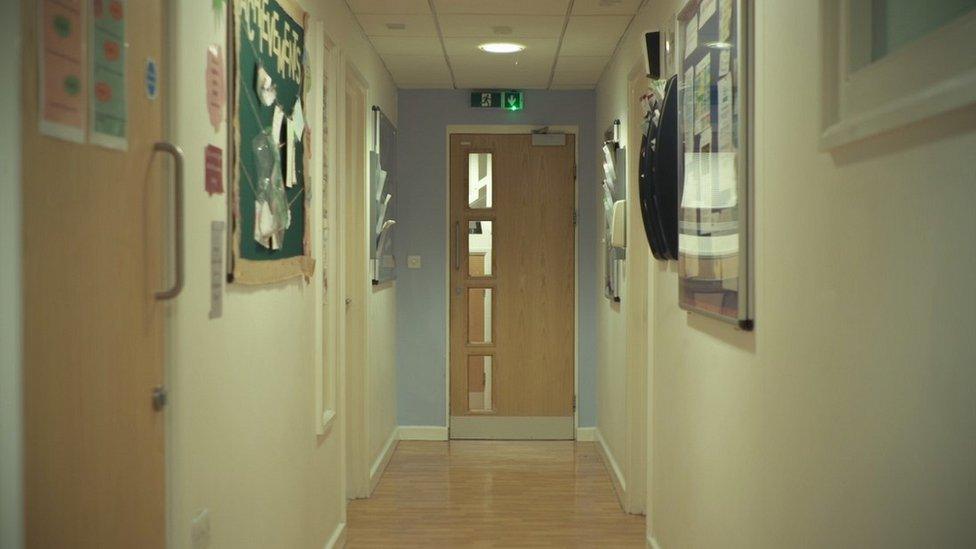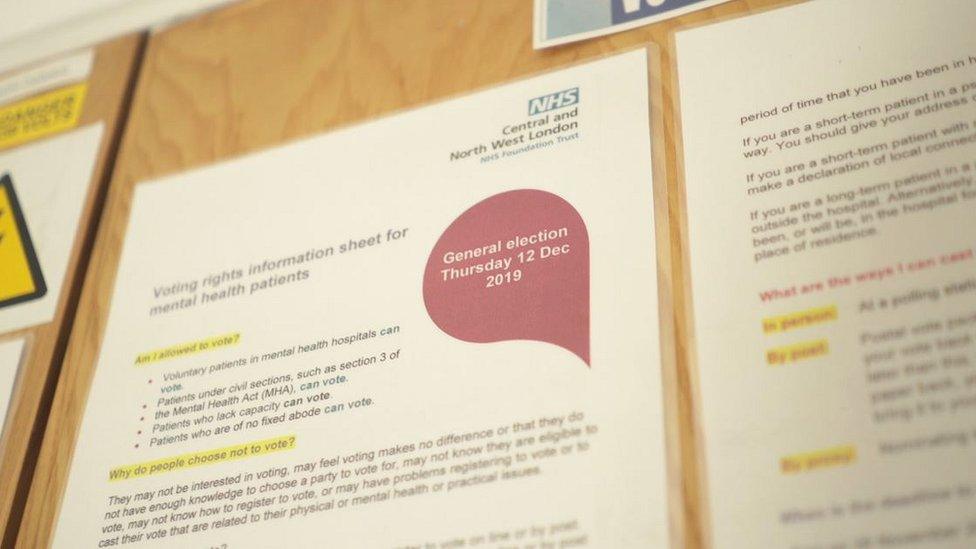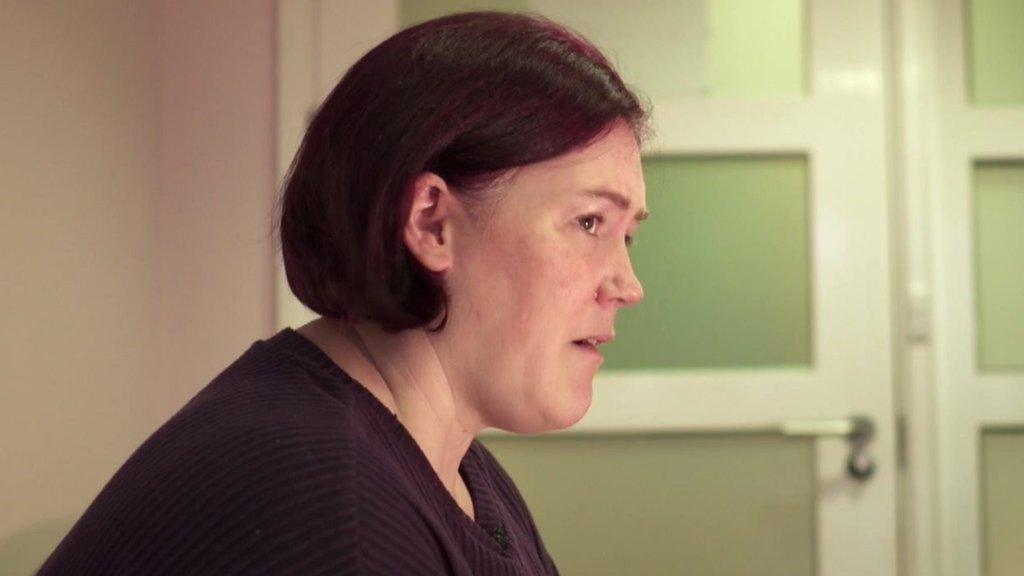General election 2019: How you can vote as a mental health patient
- Published
Voting inside a mental health unit
When Louise Evans was admitted to a psychiatric unit, she thought she had lost her right to vote.
Her parents used to be councillors so she had always been politically aware.
But being voluntarily treated for a psychotic disorder she thought she was too unwell to cast her ballot. So she was was surprised to find out most mental health service users can vote.
Patients under civil sections, those on a community treatment order, voluntary patients and prisoners who have been remanded to hospital can all vote.

Detained patients have to apply for Section 17 leave in order to exit the hospital to vote, or they can vote by proxy or post
Detained patients have to request for Section 17 leave in order to exit the hospital to vote, or they can vote by proxy or by post.
Only patients convicted of committing a criminal offence cannot cast a ballot.
Yet the turnout for those with mental health problems is often very low.
The most accurate survey, from the 2010 General Election, showed inpatients in the central London area of Westminster were 50% less likely to register than the general public, and those who did were a further 50% less likely to vote.
According to the journal The Psychiatrist, a "significant number" of mental health service users are either unaware of their eligibility, do not know how to register or lack the confidence to vote.
Louise understands why. She was nervous walking up to the polling station as she thought she might be turned away.
"There's that conception you don't understand what you're doing, that you shouldn't actually be there," she said.

Posters have been put up in Hillingdon hospital about the election
In Hillingdon Hospital, where Louise is being treated, staff are now using posters, quizzes and community chats about democracy to encourage its patients to vote.
Dr Masum Khwaja said: "Part of recovery from mental illness is about social inclusion and empowerment.
"The beliefs and the opinions of someone living with mental illness is equivalent to that of anybody else."
In 2000, the law was amended so patients could register to vote using a hospital address.
So when when Louise's father presented her polling card to Hillingdon Hospital, she was allowed to visit the polling station.
Louise is now recovering at a rehabilitation clinic at the hospital and she plans to vote in this election.
- Published27 November 2019
